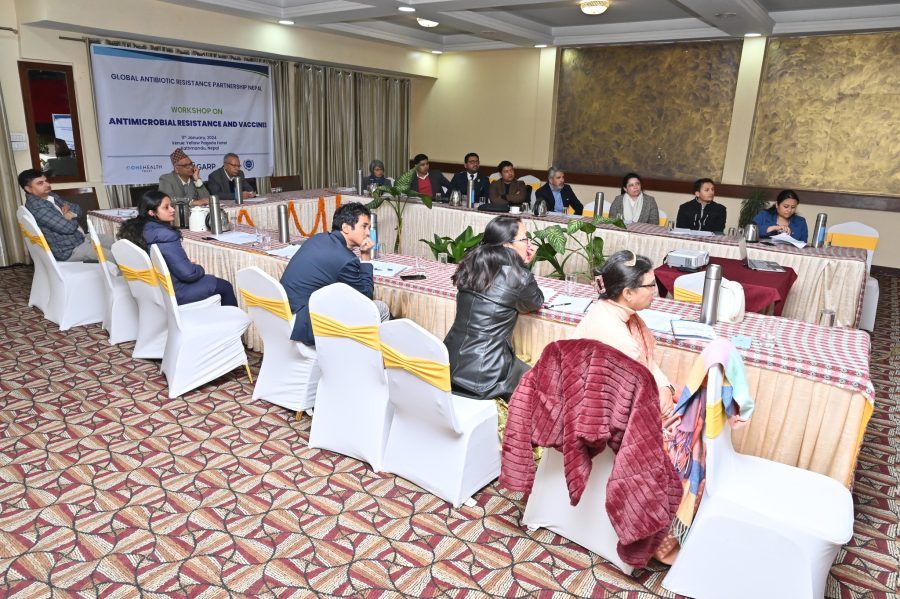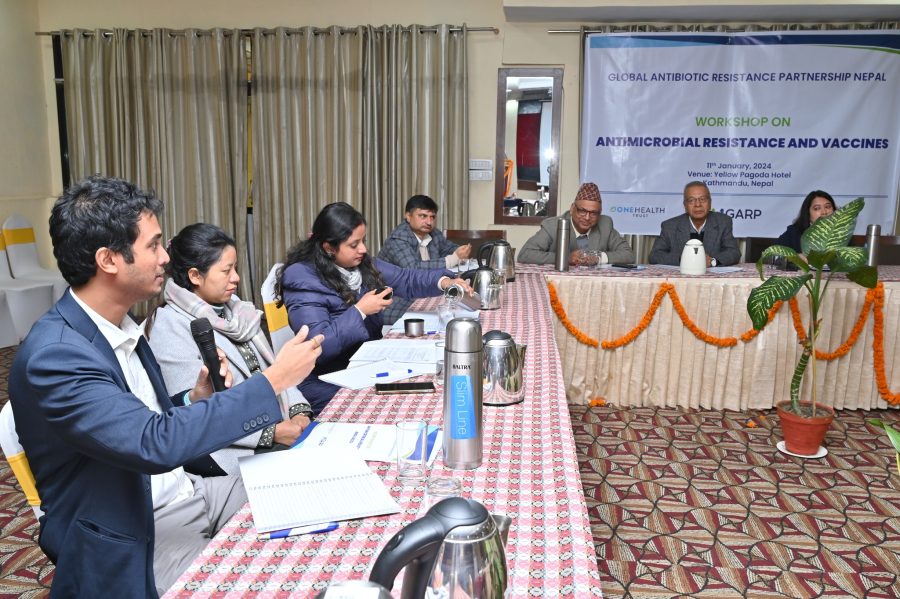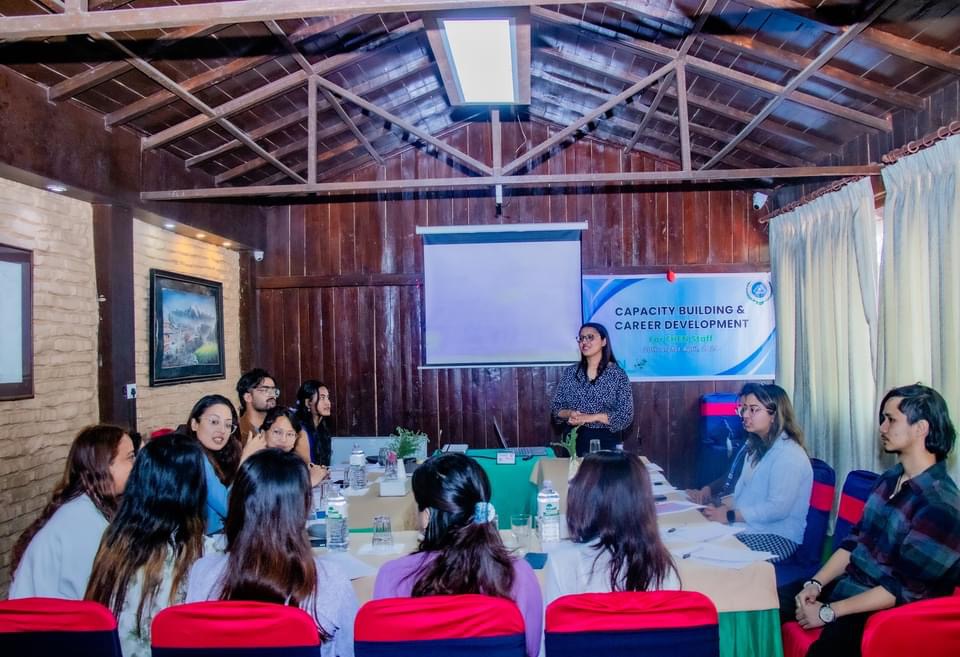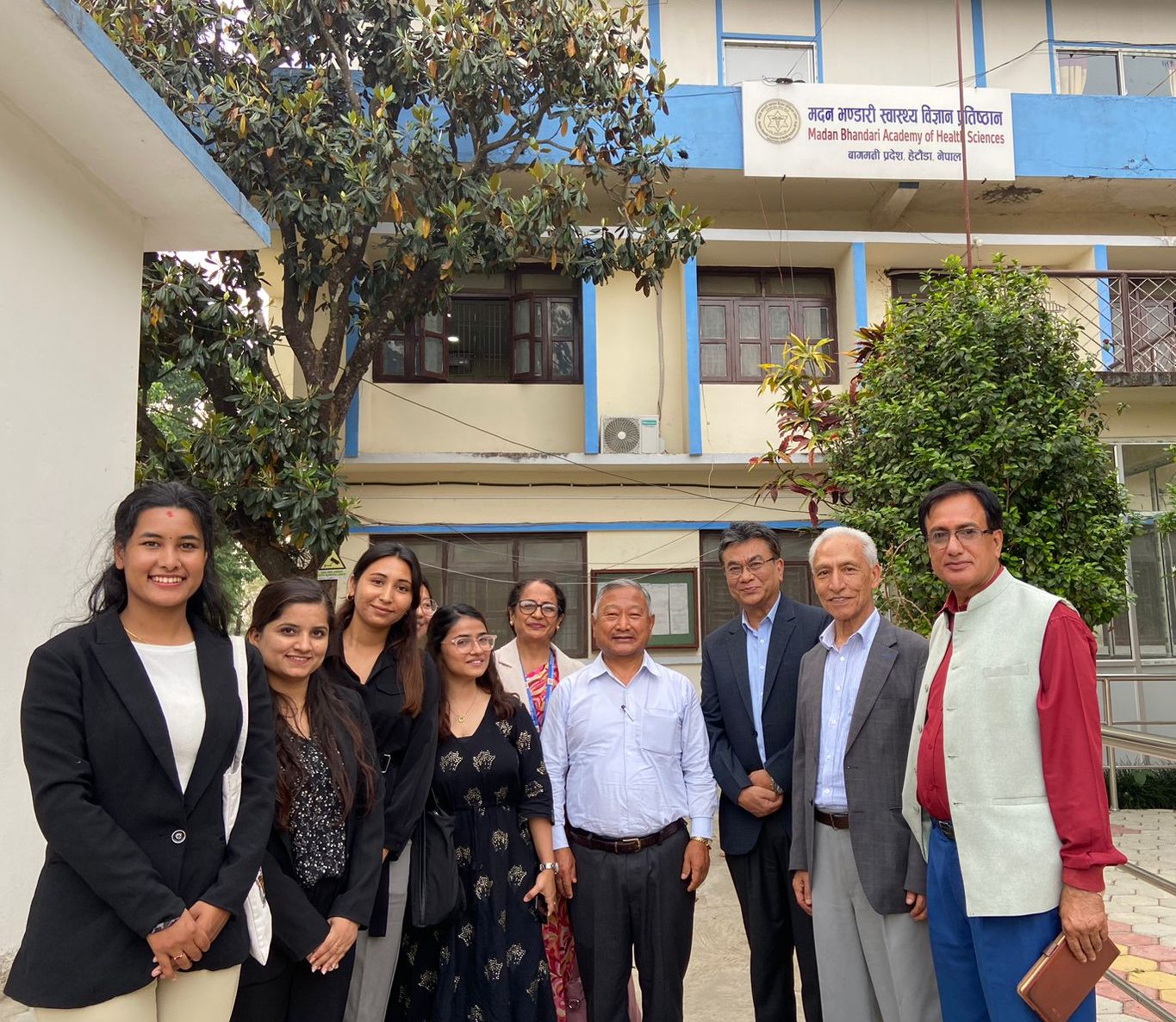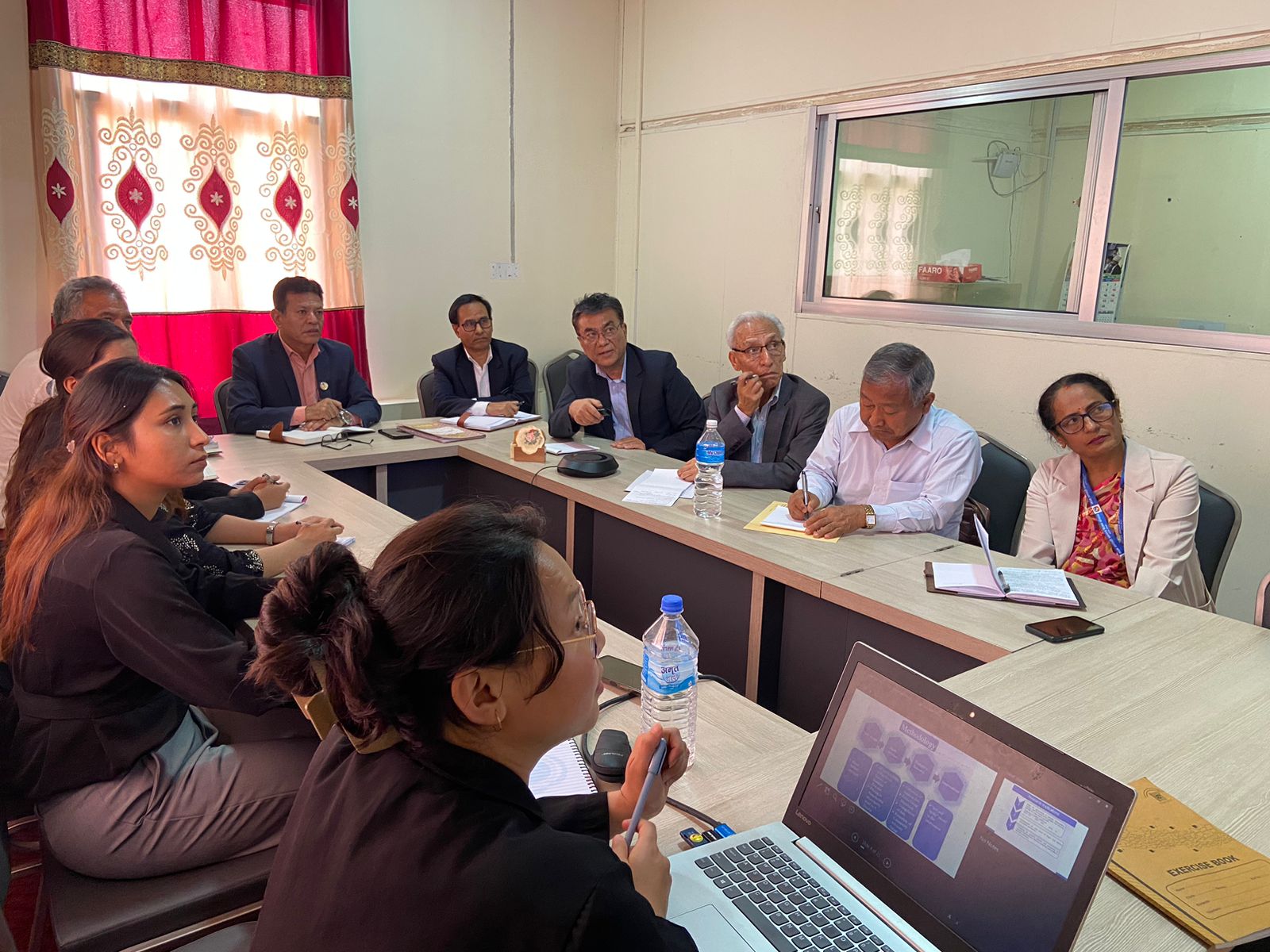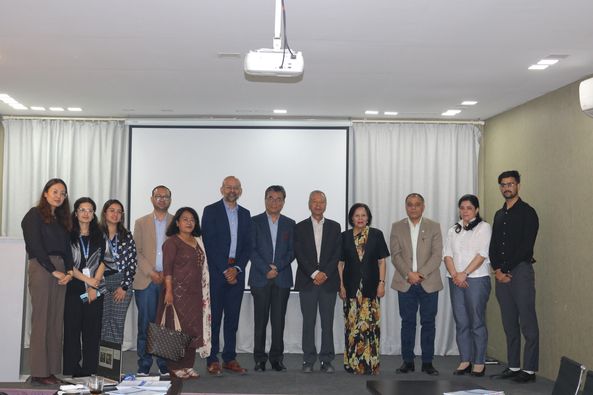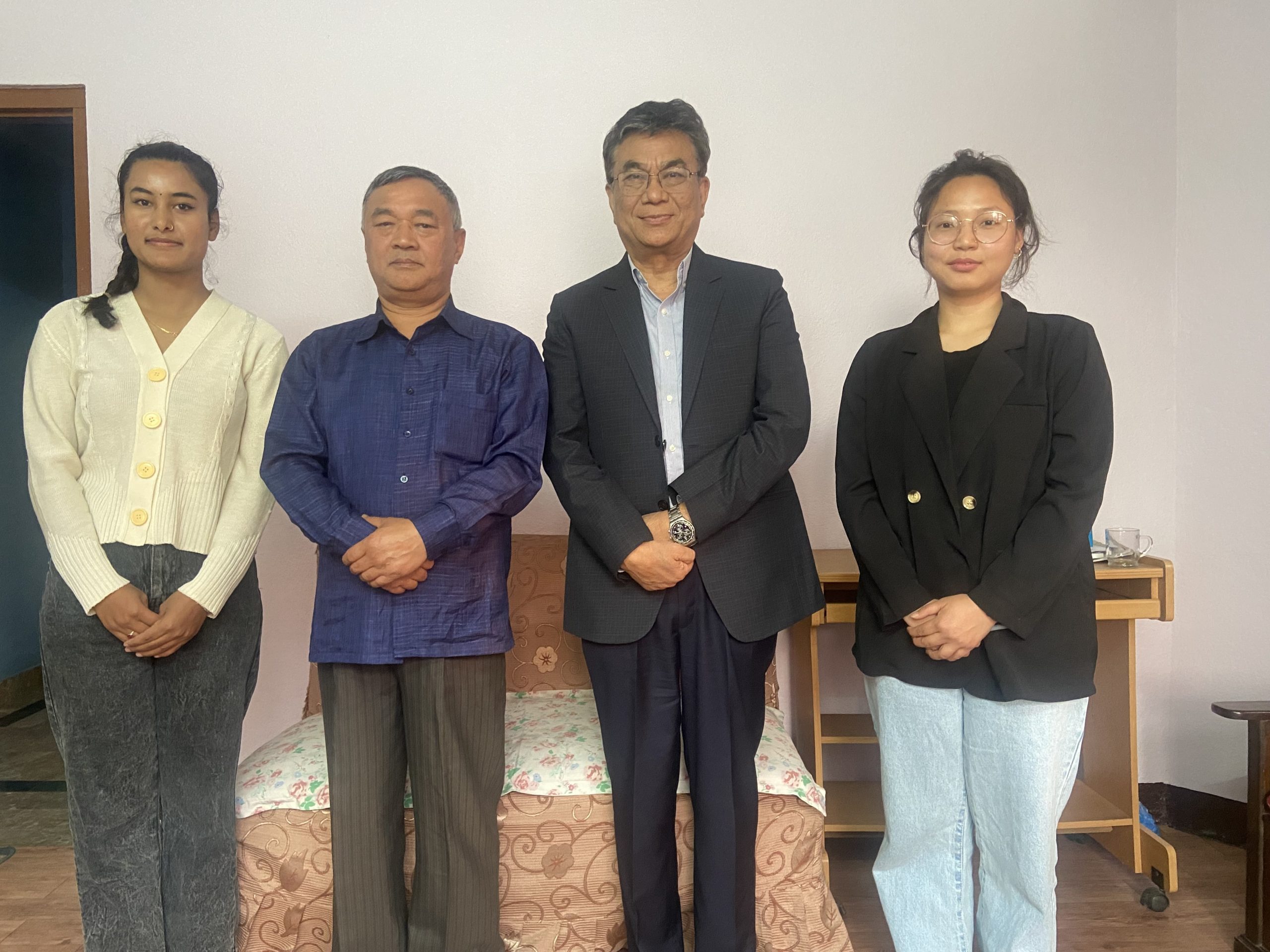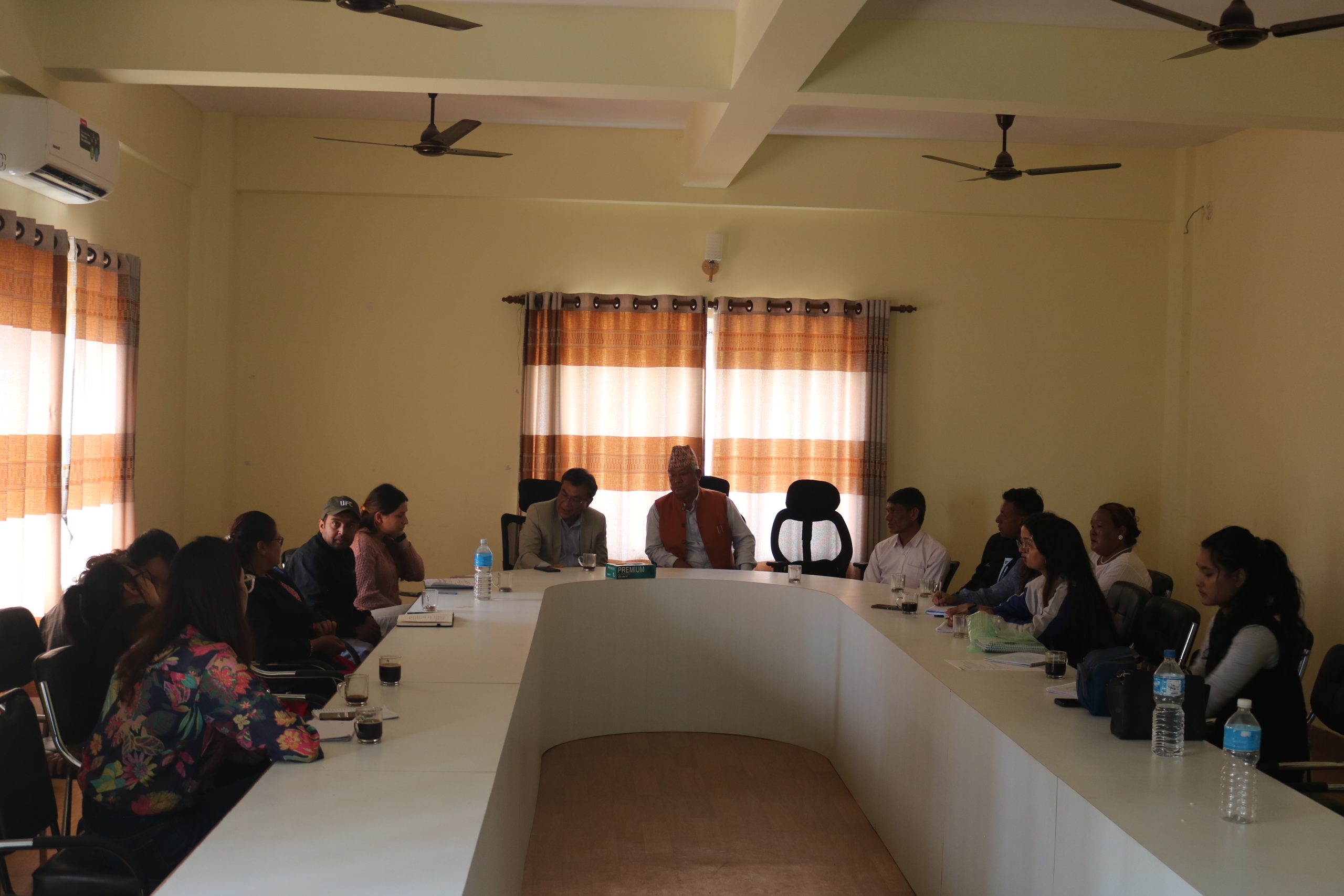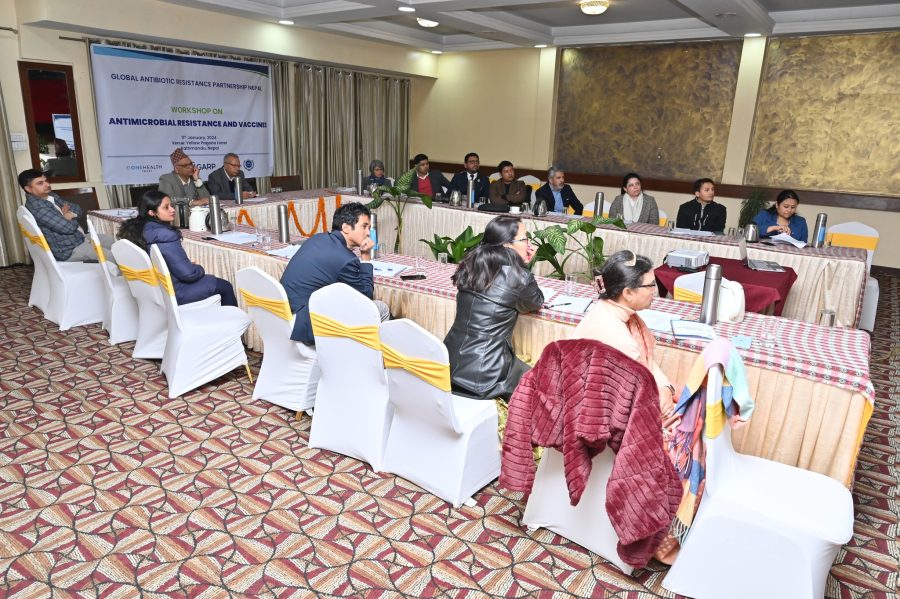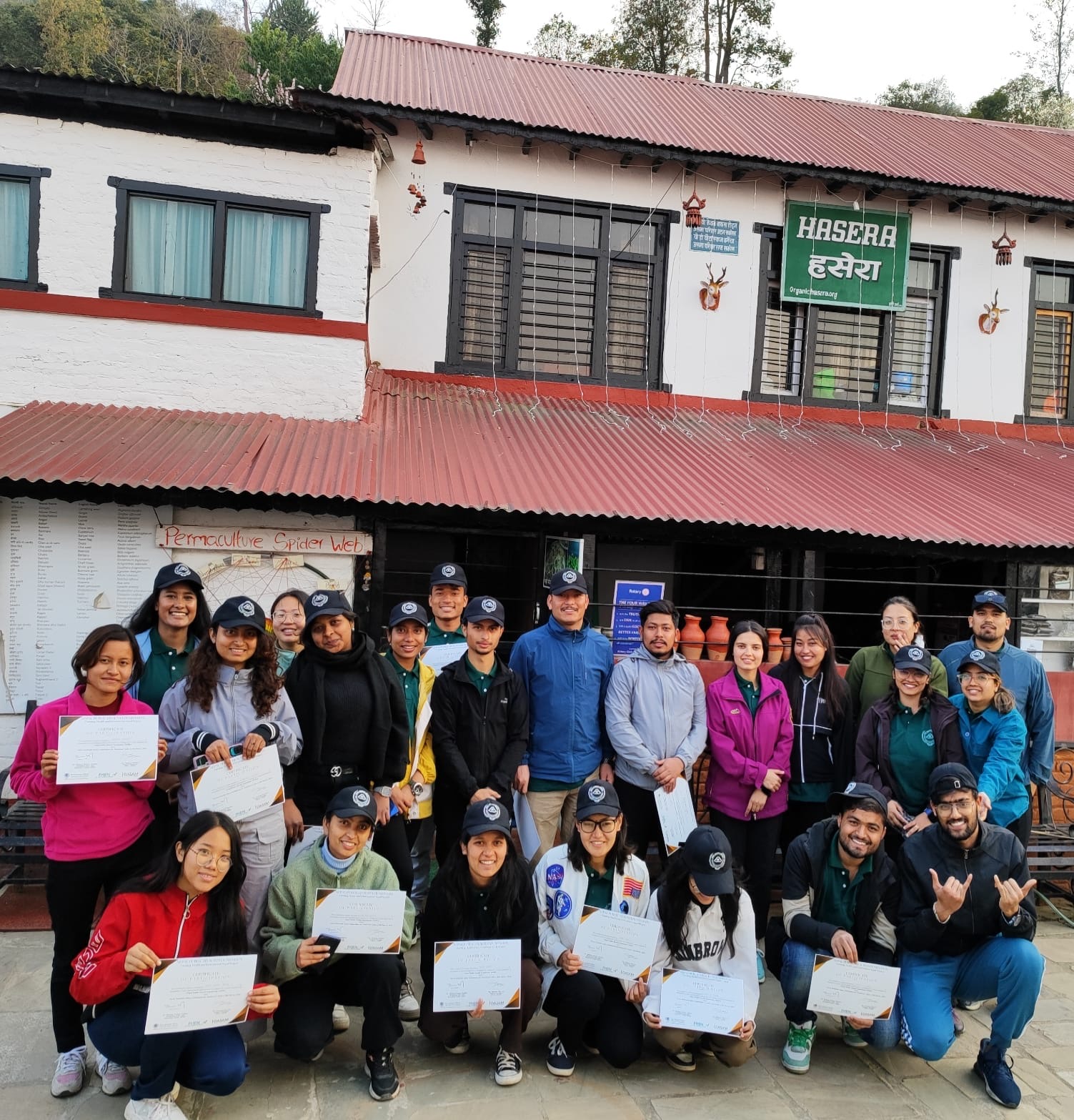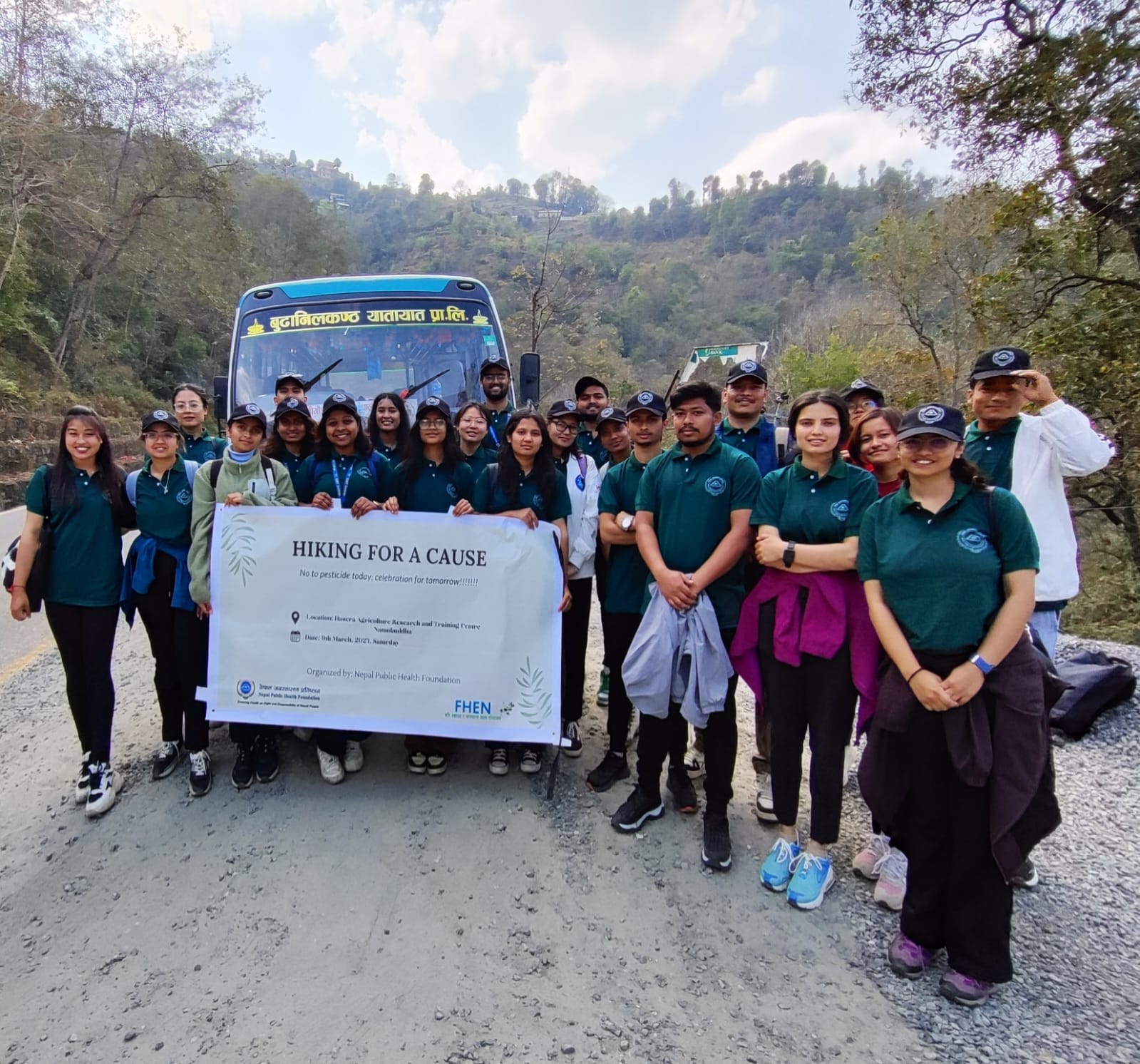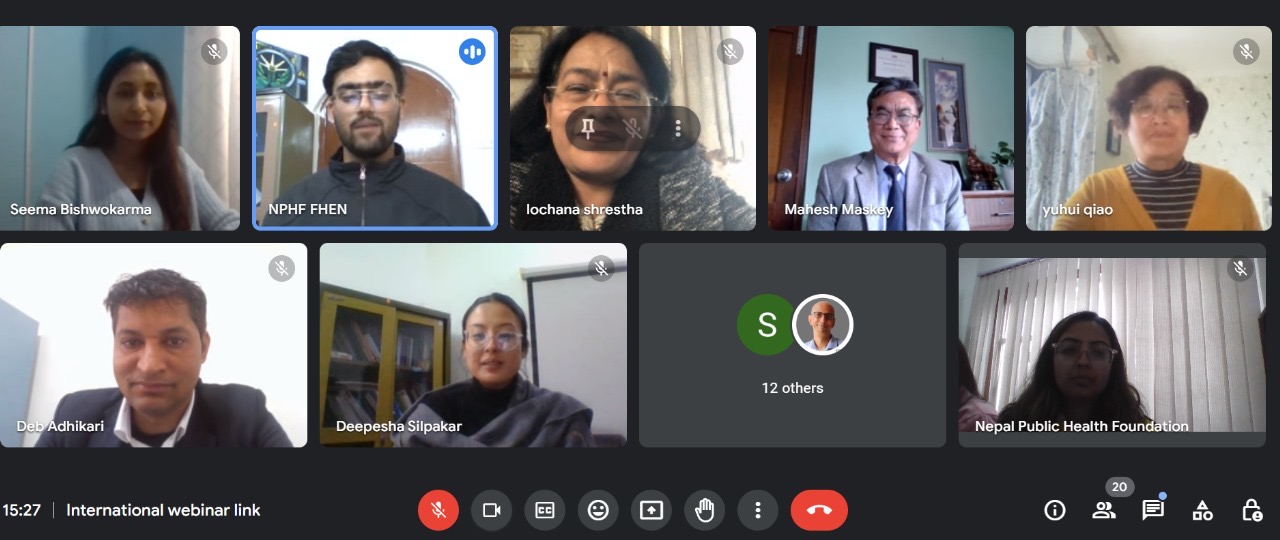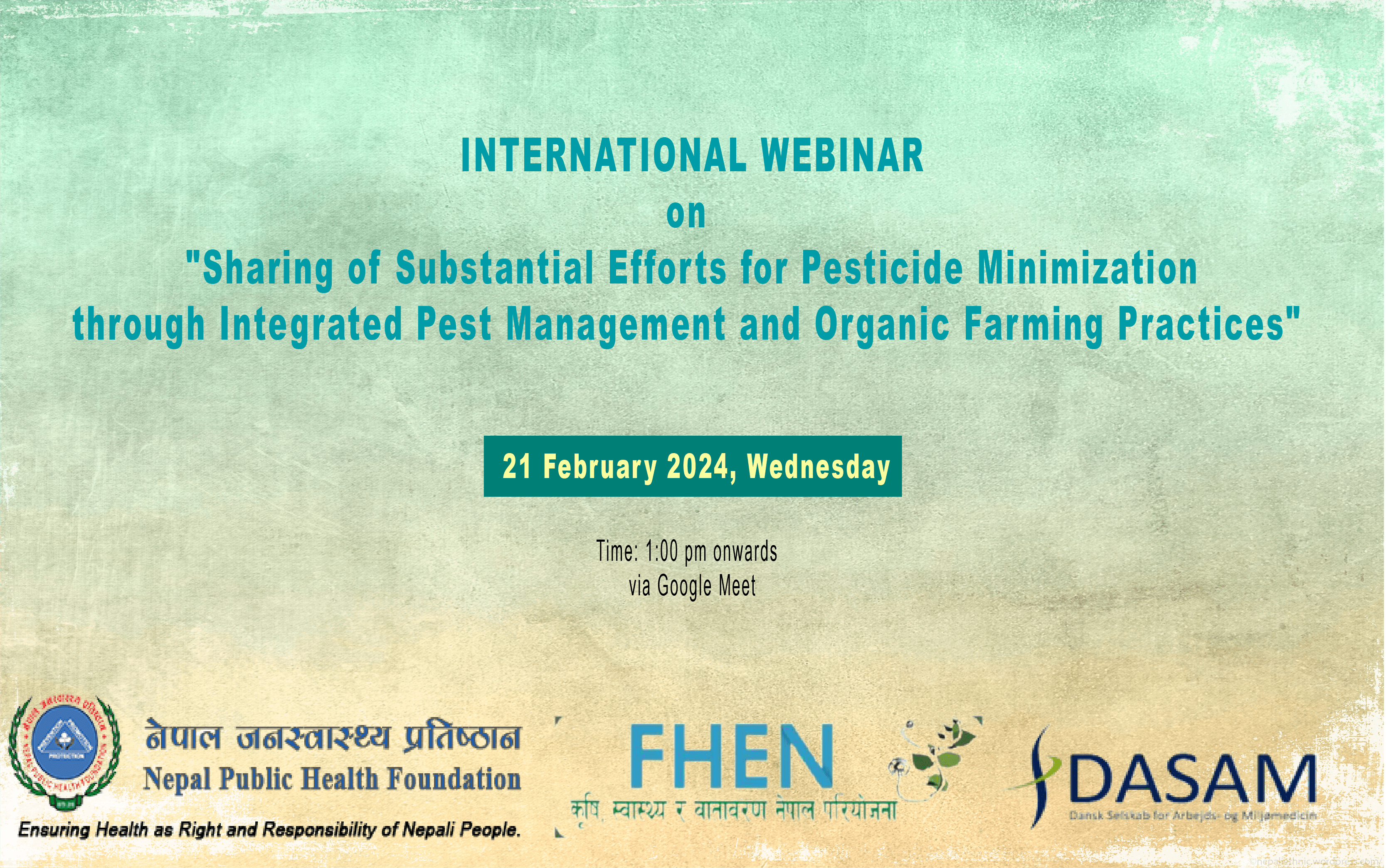Nepal Public Health Foundation hosted a remarkable 2-day program on ‘Capacity Building and Career Development’ for Farming Health and Environment Nepal (FHEN) staffs at Green Valley Resort, Budanilkantha, on April 20th and 21st, 2024. Insightful sessions were facilitated covering topics like manuscript writing, grant/proposal writing, stress management, and tax-related matters.
Author: NPHF
A visit to Madan Bhandari Academy of Health Sciences, Hetauda, Makwanpur district
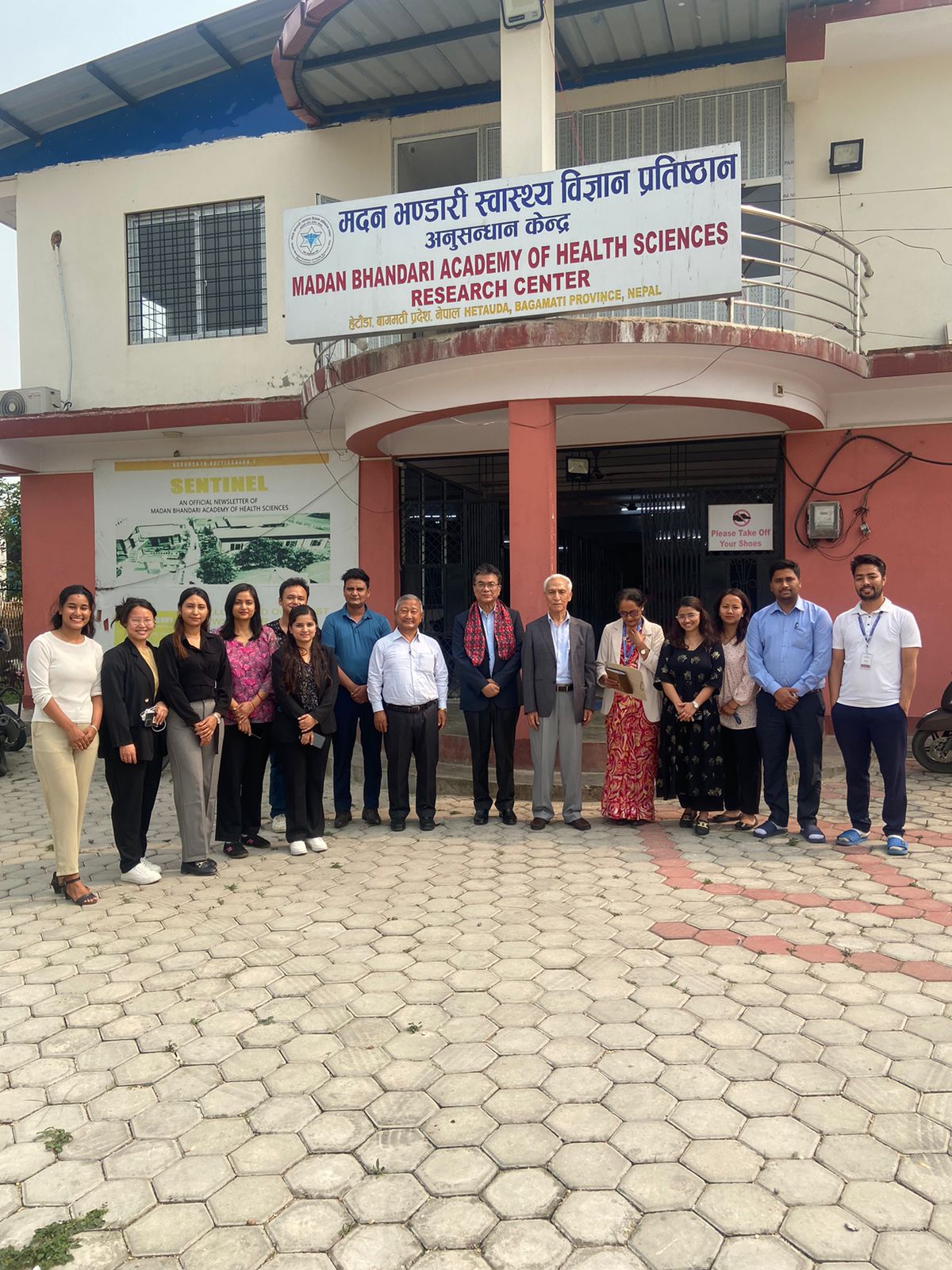
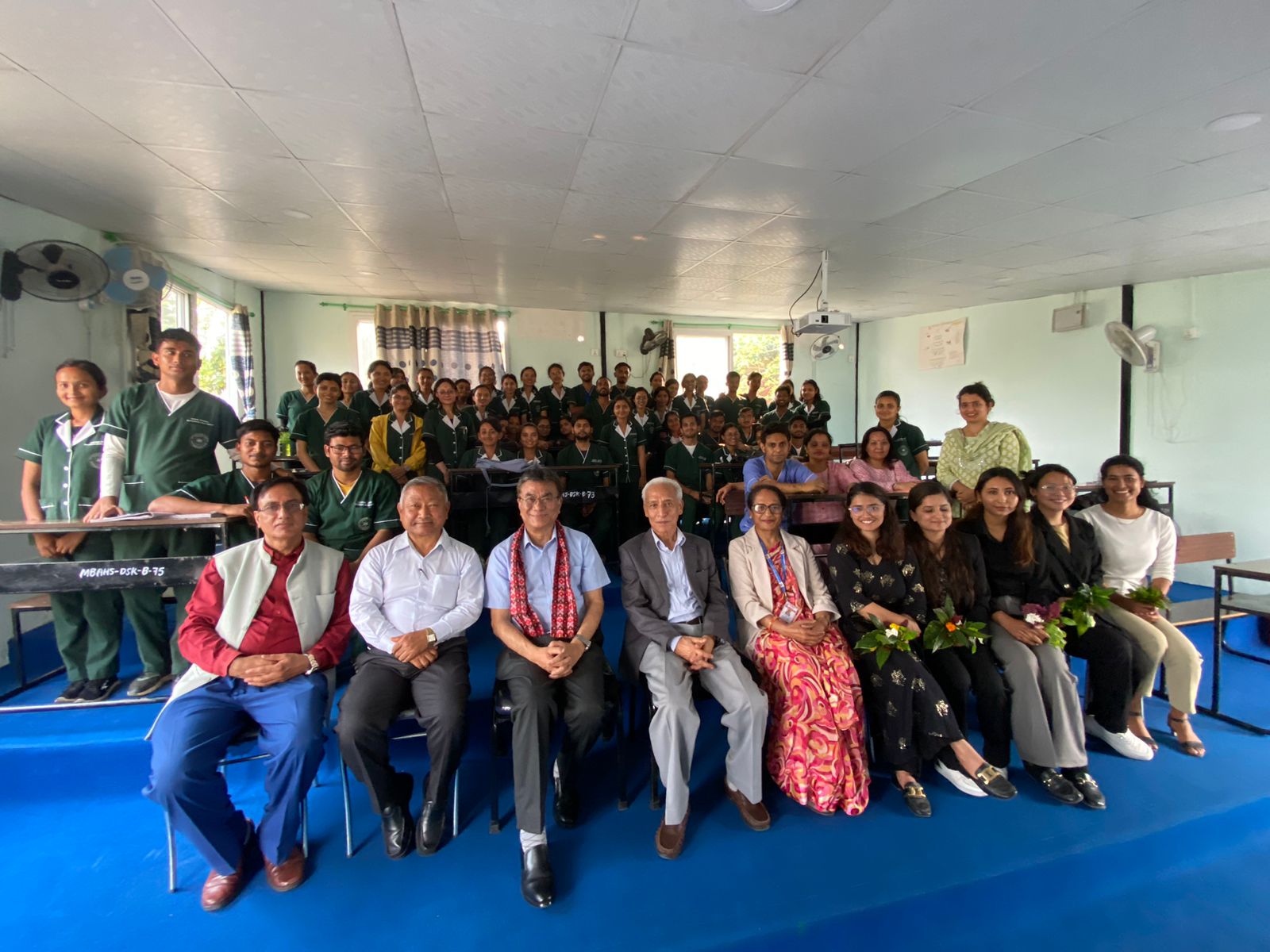
Discussion Meeting on MMR and NMR of Bagmati Province with Ministry of Health, Bagmati Province
Discussion on Global and Nepal’s Clinical Trial Landscape with Dr. Vasee Moorthy, Senior Advisor, Research and Development WHO Geneva


Discussion Meeting on pesticide related policies with Agriculture Minister of Bagmati Province
Nepal Public Health Foundation had a productive discussion with Dr. Rajendra Man Shrestha, the distinguished Agriculture Minister of Bagmati Province on 12th April, 2024 with the purpose of enhancing pesticide minimization policies and promoting the adoption of organic practices.
Discussion about pilot study in Namobuddha Municipality
Workshop on Antimicrobial Resistance and Vaccines
Nepal Public Health Foundation in collaboration with The One Health Trust and The Global Antibiotic Resistance Partnership (GARP) organized a workshop on “Antimicrobial Resistance and Vaccines “at the Yellow Pagoda Hotel, Kathmandu on 11th January, 2024.
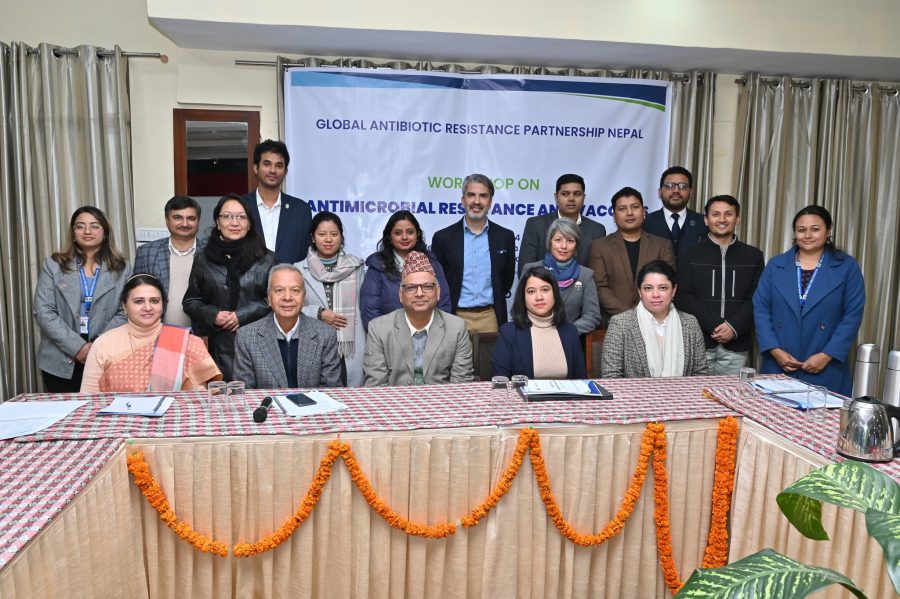
Antimicrobial Resistance, a silent epidemic, as stated by the World Health Organization requires immediate action from all the actors. Vaccines are highly effective tools for containment of antimicrobial resistance (AMR) as they prevent infections, lessen antimicrobial use thereby mitigate the development and spread of AMR.
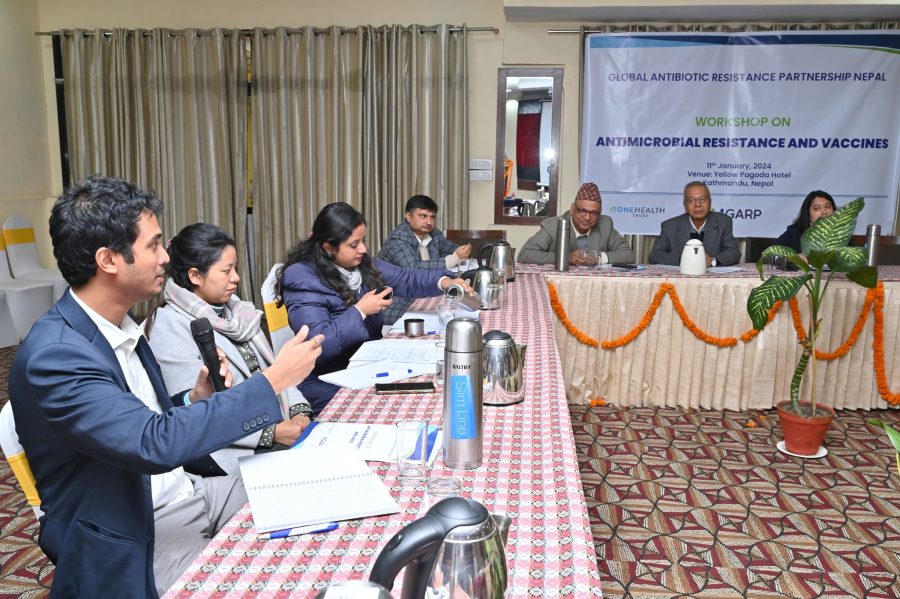
Promoting vaccines as an effective tool to combat AMR is the aim of the program. The workshop was well attended by the experts from both human health and animal health sector.
Hiking for a Cause
Nepal Public Health Foundation under the Project Framing Health and Environment Nepal conducted a Hiking for a Cause on 9th March. The theme of the event was ” No to pesticide today, celebration for tomorrow”.
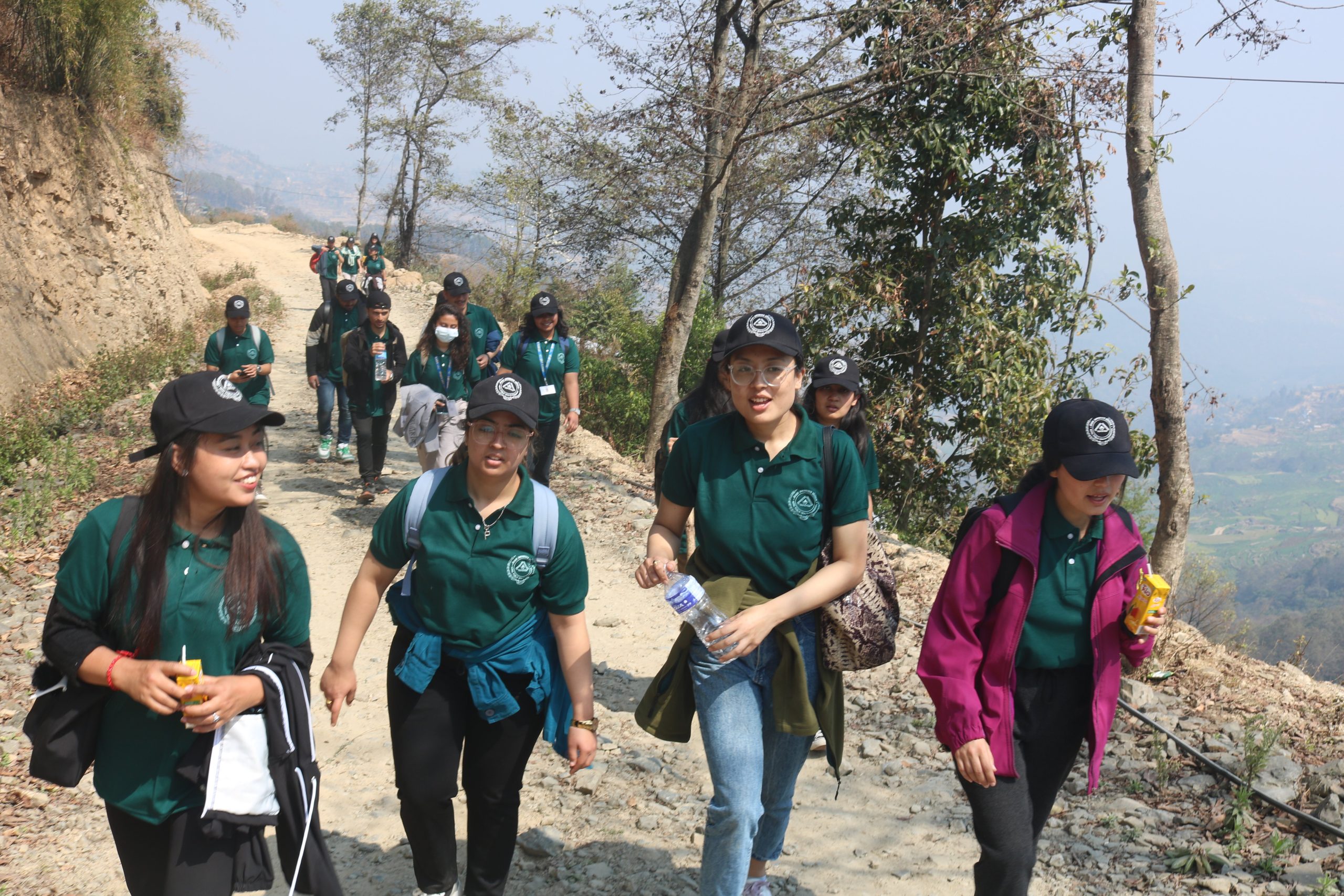
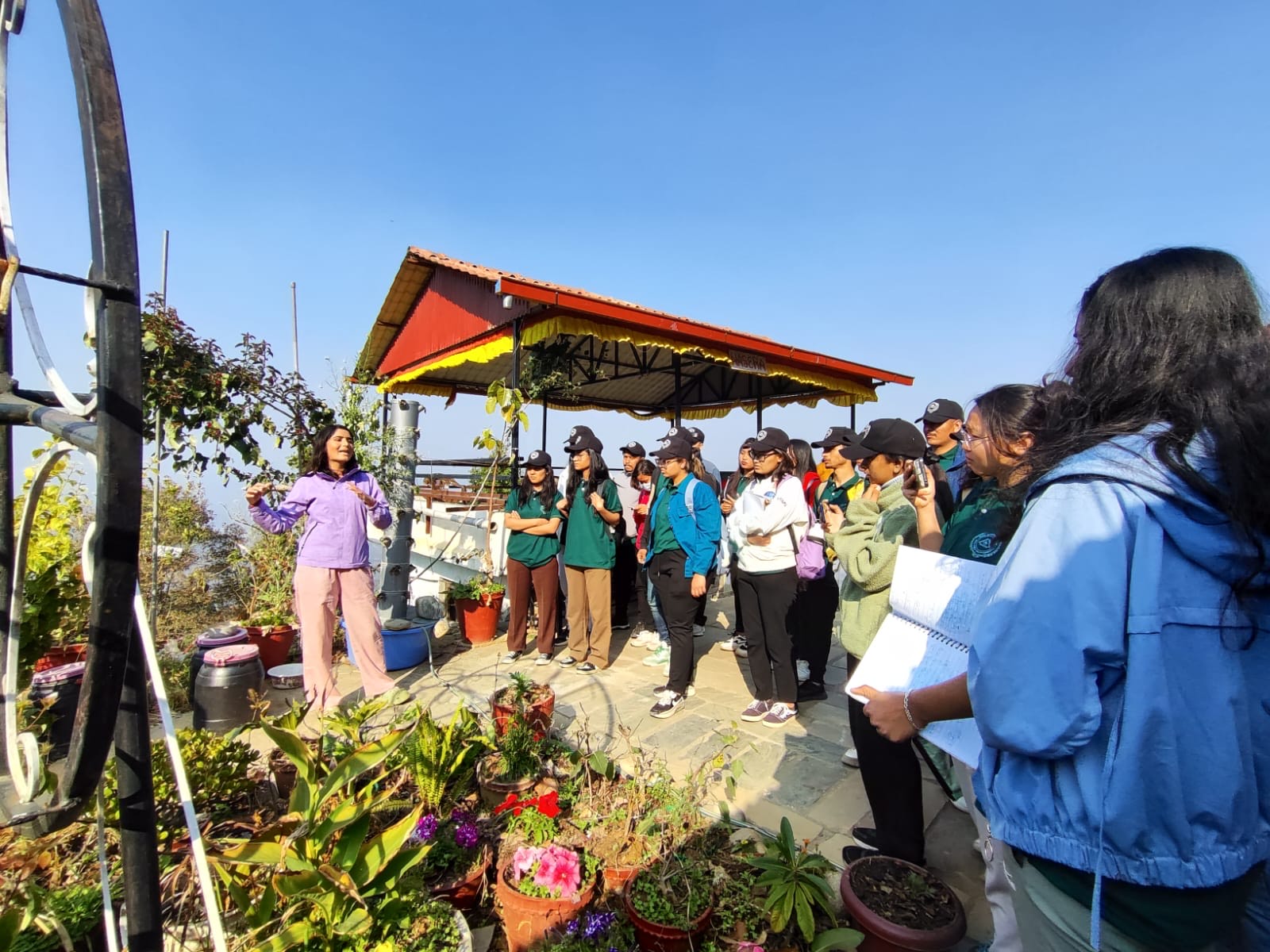
Hiking for a Cause


International Webinar on “Sharing of Substantial Efforts for Pesticide Minimization through Integrated Pest Management and Organic Farming Practices”
 Nepal Public Health Foundation under the Project Farming Health and Environment Nepal conducted an international webinar on “Sharing of Substantial Efforts for Pesticide Minimization through Integrated Pest Management and Organic Farming Practices.”
Nepal Public Health Foundation under the Project Farming Health and Environment Nepal conducted an international webinar on “Sharing of Substantial Efforts for Pesticide Minimization through Integrated Pest Management and Organic Farming Practices.”
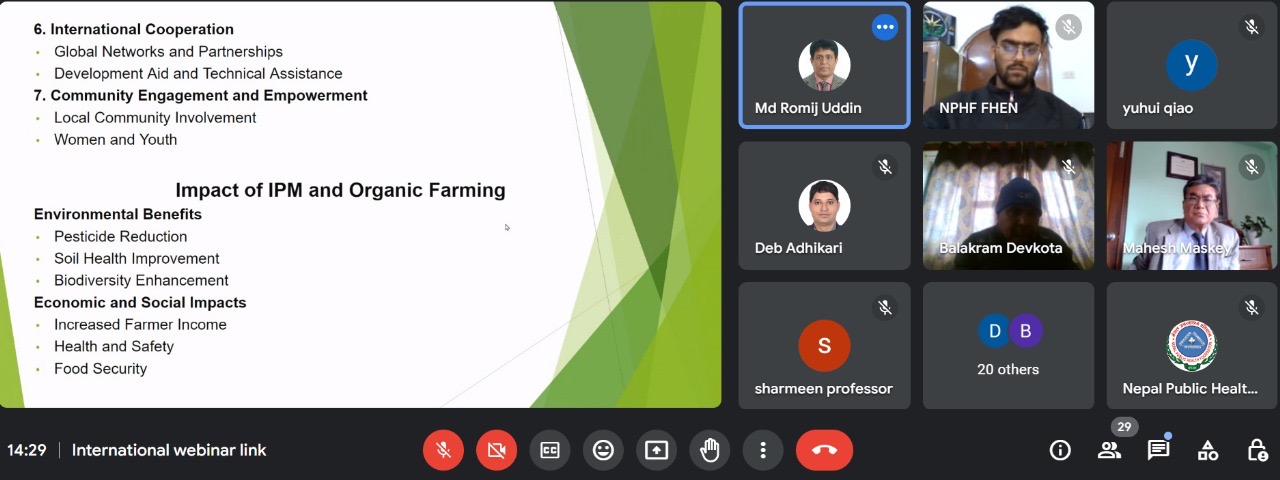 This event offered a platform for experts from various nations to share their experiences and strategies on transitioning from Integrated Pest Management (IPM) to Organic Farming, including governmental initiatives.
This event offered a platform for experts from various nations to share their experiences and strategies on transitioning from Integrated Pest Management (IPM) to Organic Farming, including governmental initiatives.
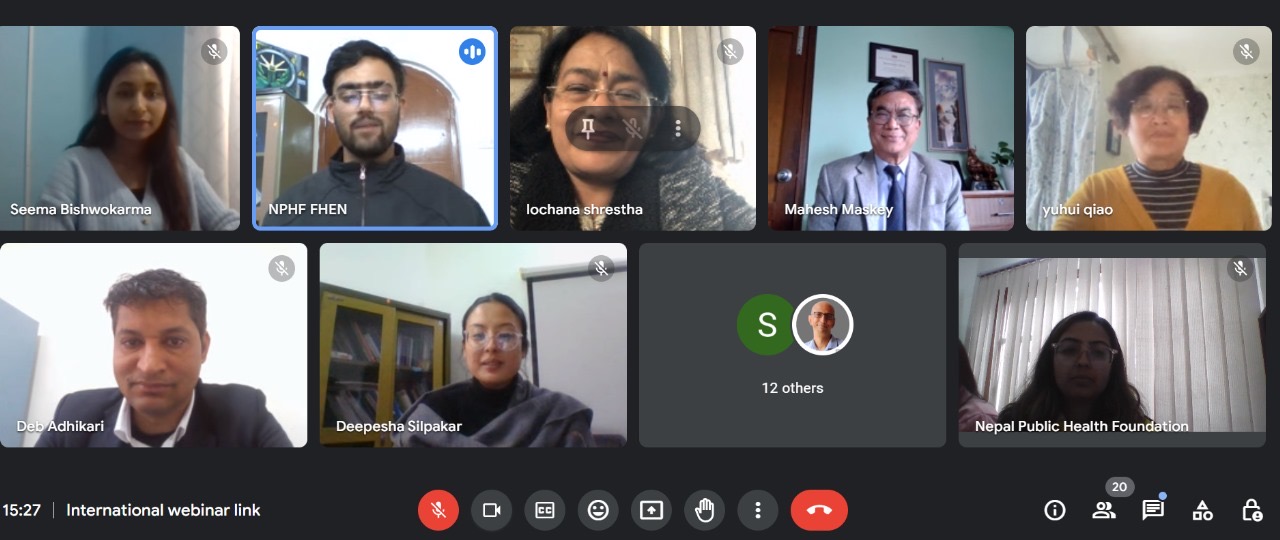 We were honored to have distinguished speakers joining us from different parts of the world, including China, Bangladesh, Nepal, and Sikkim. The webinar commenced with an insightful presentation by Dr. Yuhui Qiao, Professor of China Agriculture University, Dr. Md. Romij Uddin, Professor of Bangladesh Agriculture University, Dr. S. Anbalagan, Executive Director of Sikkim Organic Mission and Dr. Debraj Adhikari, Senior Plant Protection Officer, Nepal.
We were honored to have distinguished speakers joining us from different parts of the world, including China, Bangladesh, Nepal, and Sikkim. The webinar commenced with an insightful presentation by Dr. Yuhui Qiao, Professor of China Agriculture University, Dr. Md. Romij Uddin, Professor of Bangladesh Agriculture University, Dr. S. Anbalagan, Executive Director of Sikkim Organic Mission and Dr. Debraj Adhikari, Senior Plant Protection Officer, Nepal.
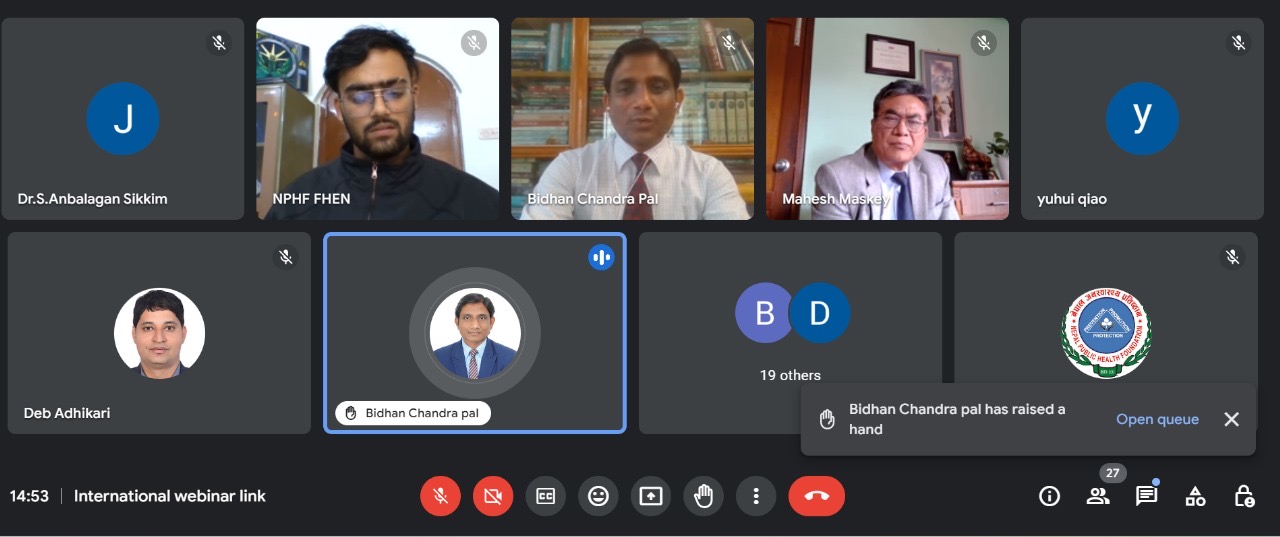
The program was also graced by the presence of His excellency Mr. Bishnu Pukar Shrestha, Nepali Ambassador to China. We had the participation of Mr. Jagadish Pradhan, Agriculture Director Sikkim, Mr. Bidhan Chandra Pal from Prova Arora Bangladesh, DASAM and DIALOGOS Team from Denmark and Prof Dr. Sharmeen Yasmeen from Public Health Foundation Bangladesh and also had representatives from Plant Quarantine and Pesticide Management Centre Nepal, Agriculture Development Office Jumla, and esteemed professors from various universities.
International Webinar on “Sharing of Substantial Efforts for Pesticide Minimization through Integrated Pest Management and Organic Farming Practices”

Nepal Public Health Foundation under the Project Farming Health and Environment Nepal conducted an international webinar on “Sharing of Substantial Efforts for Pesticide Minimization through Integrated Pest Management and Organic Farming Practices.”

This event offered a platform for experts from various nations to share their experiences and strategies on transitioning from Integrated Pest Management (IPM) to Organic Farming, including governmental initiatives.

We were honored to have distinguished speakers joining us from different parts of the world, including China, Bangladesh, Nepal, and Sikkim. The webinar commenced with an insightful presentation by Dr. Yuhui Qiao, Professor of China Agriculture University, Dr. Md. Romij Uddin, Professor of Bangladesh Agriculture University, Dr. S. Anbalagan, Executive Director of Sikkim Organic Mission and Dr. Debraj Adhikari, Senior Plant Protection Officer, Nepal.

The program was also graced by the presence of His excellency Mr. Bishnu Pukar Shrestha, Nepali Ambassador to China. We had the participation of Mr. Jagadish Pradhan, Agriculture Director Sikkim, Mr. Bidhan Chandra Pal from Probha Aurora Bangladesh, DASAM and DIALOGOS Team from Denmark and Prof Dr. Sharmeen Yasmeen from Public Health Foundation Bangladesh and also had representatives from Plant Quarantine and Pesticide Management Centre Nepal, Agriculture Development Office Jumla, and esteemed professors from various universities.
Workshop on Antimicrobial Resistance and Vaccines
